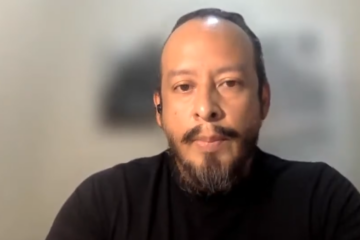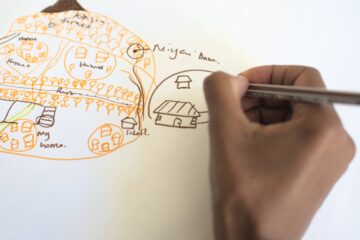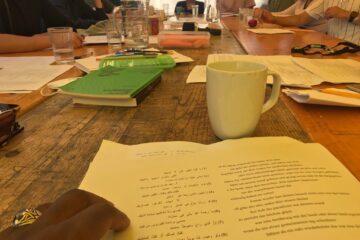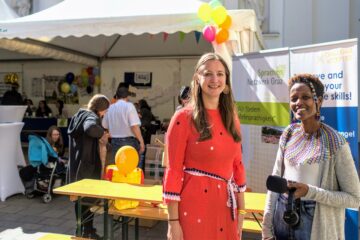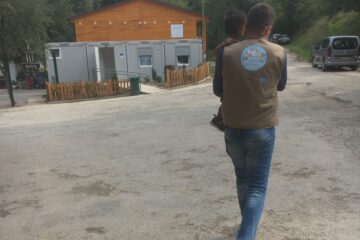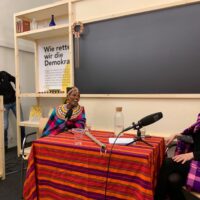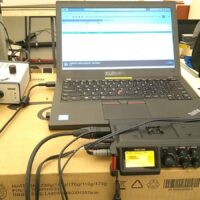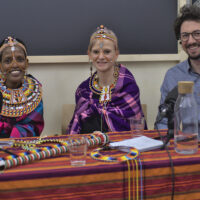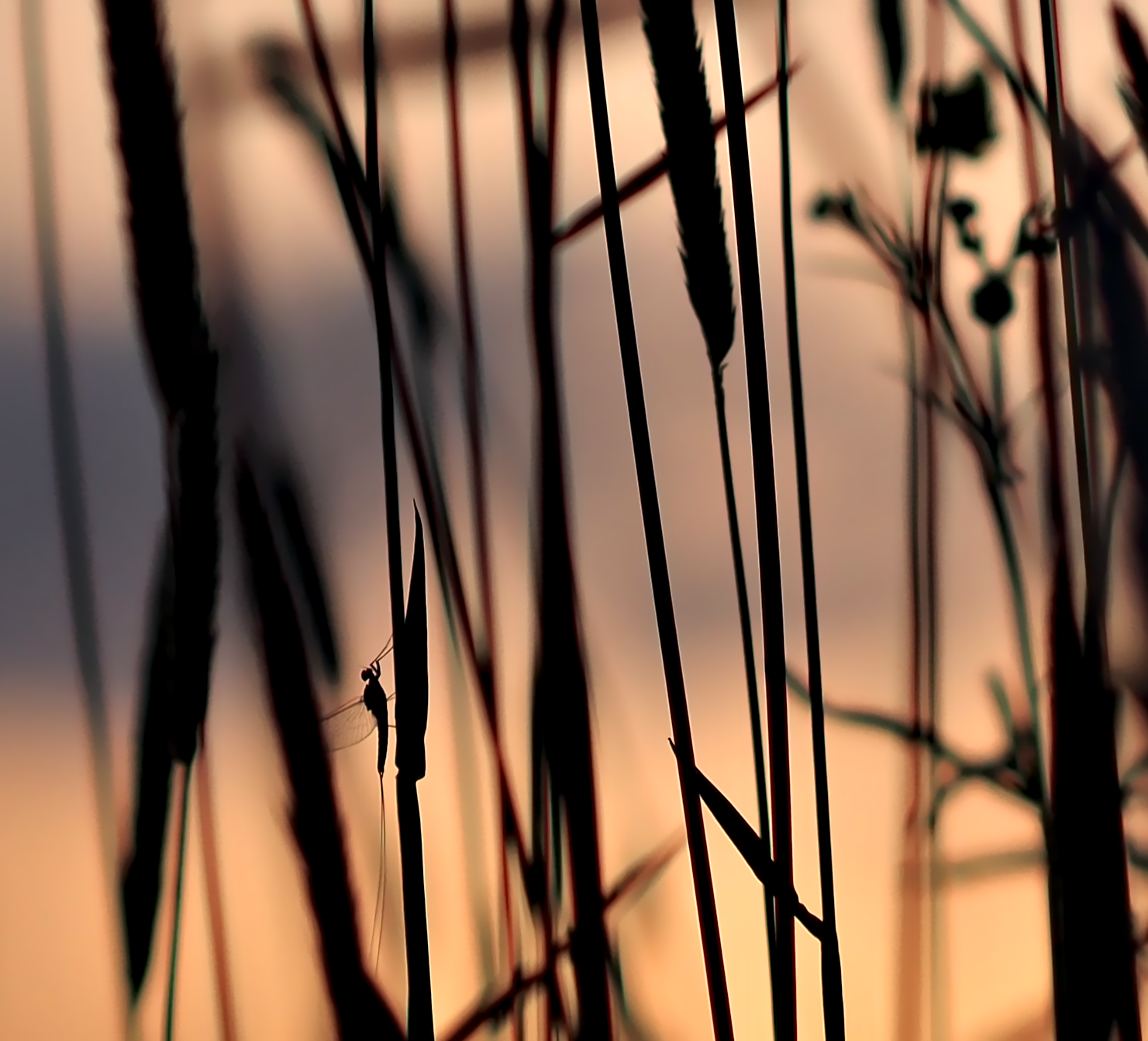Aufgezeichnete Livesendung vom 22.04.2022.
Einführung durch Rafael Schögler zum Projekt „Towards a Cosmovision Turn: Challenging Basic Translation Theories“ (FWF, 1000-Ideen). Live mithören auf Radio Helsinki oder Vorbeispazieren und Mitdiskutieren
Die Gemeinschaft der Samburu im Norden Kenias steht im Kampf um ihr sprachliches und kulturelles Überleben vor vielen Herausforderungen. Durch die Schulbildung und den Alltagsrassismus in Kenia wird das Sprechen autochthoner Sprachen unterdrückt. Das kapitalistische Weltverständnis in Verbindung mit den Auswirkungen des Klimawandels verursacht einen tiefgreifenden kulturellen Wandel in Gesellschaften, deren Lebensweise maßgeblich von einer intakten Umwelt abhängt. Missionar*innen sprechen durch Bibelübersetzungen und Evangelisierungsmaßnahmen indigenen Kosmovisionen ihre Daseinsberechtigung ab. Vor diesem Hintergrund diskutieren Peninah Lesorogol und Christina Korak über die Bedrohungen für sprachliches und kulturelles Überleben und das Übersetzen zwischen Kosmovisionen.
Peninah Lesorogol ist Angehörige der Samburu und wuchs im Dorf Naiborkeju auf. Sie war eine der ersten Frauen ihrer Dorfgemeinschaft, die ein Universitätsstudium absolvierte, und leitet Projekte, die die Souveränität der Samburu-Frauen durch die Herstellung von traditionellem Kunsthandwerk stärken und die Ernährungssicherheit gewährleisten.
Christina Korak ist PostDoc-Forscherin und führte Feldforschung in Waorani-Dorfgemeinschaften im Amazonas-Regenwald Ecuadors durch, die von Erdölausbeutung und Abholzung betroffen sind.
Infos zum Uni Graz Popupstore
Kontakt Peninah Lesorogol: plesorogol@gmail.com; Peninahs Kunsthandwerk-Shop zur Unterstützung der Samburu-Frauen: https://www.samburu.at
Kontakt Uni-Graz: Christina Korak; christina.korak@uni-graz.at; rafael.schoegler@uni-graz.at
Aufgezeichnet am 22. April 2022, 18:00 bis 20:00 Uhr, Uni Graz Popupstore, Herrengasse 16, 8010, Graz
Danke für die Kooperation mit der Universität Graz und dem Institut für Theoretische und Angewandte Translationswissenschaft.
English Version
Live radio broadcast from the shop window with Radio Helsinki: conversation between Peninah Lesorogol and Christina Korak.
Talk in English. Introduction by Rafael Schögler on the project “Towards a Cosmovision Turn: Challenging Basic Translation Theories” (FWF, 1000-Ideas). Listen live on Radio Helsinki or walk by and join the discussion.
More about the Uni Graz Popupstore
The Samburu people in northern Kenya face many challenges in their struggle for linguistic and cultural survival. Schooling and everyday racism in Kenya suppress the speaking of autochthonous languages. The capitalist understanding of the world together with the effects of climate change, is causing profound cultural change in societies whose way of life depends largely on an intact environment. Missionaries are denying indigenous cosmovisions through Bible translation and evangelisation. Against this background, Peninah Lesorogol and Christina Korak discuss the threats to linguistic and cultural survival and translation between cosmovisions.
Peninah Lesorogol is a member of the Samburu and grew up in the village of Naiborkeju. She was one of the first women in her community to graduate from university and leads projects that empower Samburu women through the production of traditional handicrafts and ensure food security.
Christina Korak is a PostDoctoral Researcher who conducted field research in Waorani village communities in the Amazon rainforest of Ecuador affected by oil exploitation and deforestation.
Contact Peninah Lesorogol: plesorogol@gmail.com; Peninah’s handicraft shop to support Samburu women: https://www.samburu.at
Contact Uni-Graz: Christina Korak; christina.korak@uni-graz.at; rafael.schoegler@uni-graz.at
Recorded at Friday, 22nd of April, 6pm to 8pm, Uni Graz Popupstore, Herrengasse 16, 8010, Graz









